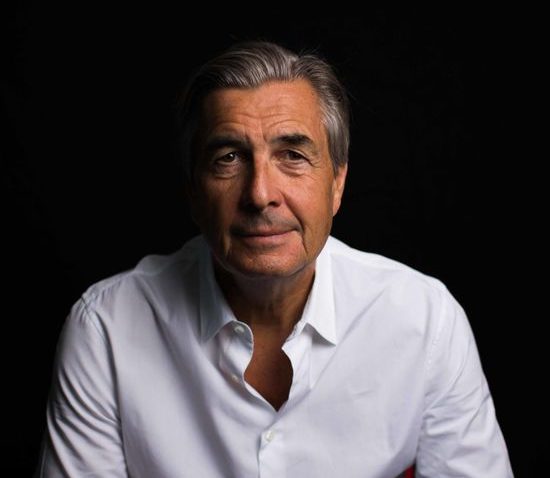Crown producer calls for UK drama protection
March 22, 2024
By Colin Mann

Andy Harries, co-founder of Left Bank Pictures, producer of acclaimed series The Crown, has warned that the UK production sector is in danger of ending up as a first class, top-end service industry to the US at the expense of our own experiences.
Harries issued the warning in an acceptance speech at the 50th annual Broadcasting Press Guild Awards in London where he received the Harvey Lee Award for Outstanding Contribution to Broadcasting.
“TV today is very different from the days of the duopoly of the BBC and ITV. Streamers, and Netflix in particular, have changed everything, especially for me,” he said. “The Crown would never have been made if Netflix had not bought it. They had the money – they shared our ambition for it – and they always understood the brand value of the other “royal family” in a global market. There are more broadcasters than ever before, more opportunities, and the tax breaks reflect a government who are slowly understanding how important the creative industries are to our economy. TV is a big business and we are very good at it – much of our top UK talent play a key part in US funded TV shows, and mega Hollywood movies are being shot here in the UK – but despite all our success, I am worried that the very heart of our UK business – our public broadcasters – are increasingly looking vulnerable with ad money now draining from ITV and C4 to Amazon and Netflix, and the BBC’s licence fee falling far short of the rate of inflation,” he admitted.
“This means that all of their drama budgets are under huge pressure and the sort of shows that are at risk in the future are the ones about us and our lives in the UK,” he suggested. “Neither BBC or ITV licence fees have kept pace with inflation and there is very little appetite from the US and global TV market for shows that are essentially about very local and contentious – and I mean political – subjects.”
He noted that with co-pro monies drying up in the US, many uniquely British shows couldn’t be financed at all. “So I ask – would Boys from the Blackstuff, Hillsborough, or Our Friends in the North be made these days? How about Five Daughters, This Is England, The Deal, Longford or even The Royle Family? I am not so sure. Are we in danger of our business ending up as a first class, top-end service industry to the US at the expense of our own experiences – shows that reflect our own lives in the UK? Perhaps the answer lies in extending the 40 per cent tax allowance recently introduced in the last budget for British movies to single films and limited series on TV that are specifically British,” he added.
“Of course, the streamers are spending lots of money here, and Netflix in particular is very committed at present to British producers and locally made shows but streamers like shows that travel, are entertaining, and won’t offend,” he noted. “We live in times when drama on TV is becoming de-politicised – no global company is rushing to make dramas which involve religious, racial, or political controversy,” he claimed.
“So let’s have a think about how we can go about protecting original British drama on ITV and Channel 4, and let’s talk for a couple of minutes about the future of the BBC. Surely, it’s time to stop chipping away at it or giving oxygen to those who constantly call to cut it to the bone – this is NOT the answer,” he asserted.
“If Labour achieves power, Starmer and his cabinet should commit to increasing the licence fee, show it the love, and secure its long-term future, once and for all,” he stated. “The streamers NEED the competition. Our industry needs a healthy BBC, and the BBC keeps us British – its role in our society is unique and unifying. And let’s stop calling it a TV licence, this tax should not be defined by the way you watch the BBC – it should be reinvented as a cultural subscription – a fee (and very comparable to each of the streamers these days) which gives every British citizen access to its extraordinary range of TV shows, radio, podcasts, orchestras, and music in all its forms.”
“The BBC and ITV are still the default entertainment channels for millions of people in this country, and always at times of national celebration and crisis. This country needs a TV industry which remains distinctive, independent, and competitive with US global media companies. Let’s work together to find an inventive way to ensure that all our public broadcasters are a continuing part of the national debate with their drama, and they have some protection AND the funds to make the shows that can shine a light on our lives in the UK and sometimes – make a difference,” he concluded.
